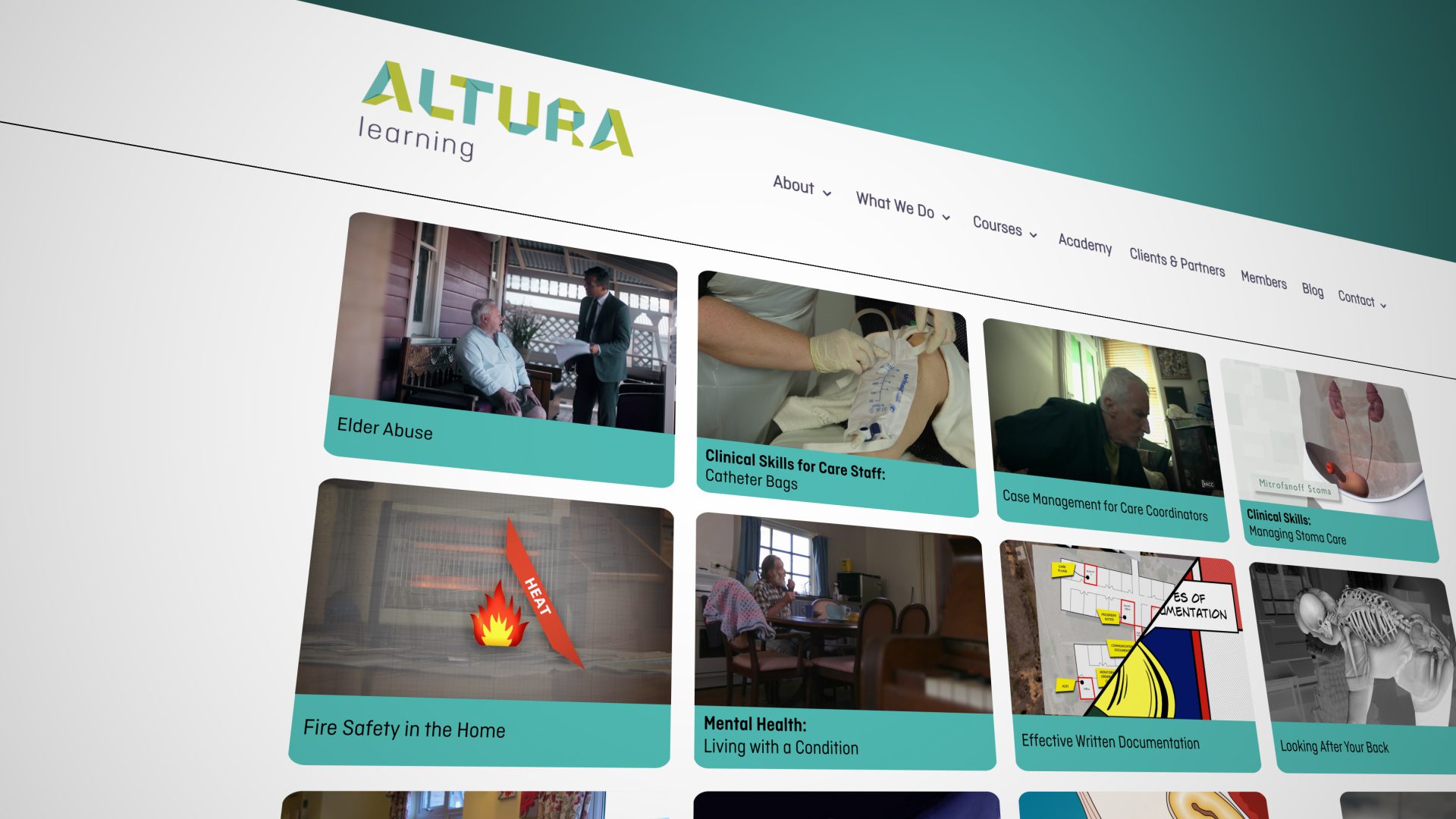Altura Blog
Change behaviours by reflecting back on what you do
03/10/2019As learning and development professionals we know that there are a variety of ways that adults learn and there are a multitude of learning theories to support this.
As learning and development professionals we know that there are a variety of ways that adults learn and there are a multitude of learning theories to support this.
The extension assessment can be given to all staff and it’s particularly useful for advanced practice nurses such as RNs who are required to reflect on their professional practice.
When you’re working in the home care setting as a care/support worker, you may be the only person who sees a client on a regular basis. It’s expected that older people will have changes in their care or support requirements as they age or as their condition deteriorates so, as a home care worker, you are in the perfect position to recognise and act on these changes to ensure the person is supported appropriately.
Thorough and appropriate documentation is a fundamental requirement when delivering care or support to a person. Not only does poor documentation impact on resident care, it could also impact you personally and your organisation if your notes are examined in a court or during an inspection.
Our essential assessment is generally comprised of 15 questions. Usually they are true or false, multiple choice, fill the gap, or if the course allows, sorting/sequencing questions. The questions reflect the content of the video and are designed to ascertain if the learner has understood the content presented in the video.
There are a range of learning theories that come and go from popularity and the more we research the topic we realise that there are many different ways to explain how adults learn and how to best support them.

All of the resources are available as pdf resources for all courses released from 2019 onwards.

In our previous blog we discussed Altura’s resources, and how they support different methods of content delivery including self-learning and face-to-face training. How can Bridge complement these resources?
In our new course Promoting Equality, Diversity and Inclusion we discuss the characteristics such as age, race, religion or sexual orientation that are protected against discrimination and how we can celebrate these characteristics.
Altua Learning developed a Learning Pathway which is underpinned by adult learning theory and reflective of contemporary practice to support and improve adult learning.

Altua Learning developed a Learning Pathway which is underpinned by adult learning theory and reflective of contemporary practice to support and improve adult learning.
Altura Learning is releasing three Teamwork titles; Communication, Resolving Conflict and Time Management. You will find these on Bridge or the Content Portal as three separate new courses.
You’ll notice all of Altura Learning’s courses have one of four levels of a Learning Pathway assigned to them. This is what each level means.
Altura Learning has been working with care sector recruitment specialists Cohesion and Neil Eastwood from Care Friends to develop a best practice model for recruiting, training and retaining an engaged workforce.
First Aiders can provide basic life support to people with life threatening illnesses or injuries, in order to maintain their airway, breathing or circulation until they can receive full medical care.
In this Altura Talks segment, Margaret Jennings who is a Microbiologist and specialises in providing training to the aged care industry, provides an overview of anti-microbial stewardship and suggestions of strategies on how you may meet the new requirements.
Here are a few signs it’s time to put your current learning management system out to pasture.

We’re excited to announce that we’ll be working with Maggie Beer Foundation & William Angliss Institute to create online training for aged care cooks and chefs across Australia.
The poem ‘Alone’ was written by Chris Woodward, a former care worker who was inspired after working closely with many dementia patients over the years.
Our course H&S: Risk Management will empower staff to take an active role in assessing and managing risk as well as bringing greater awareness around health and safety in the workplace.
Dementia: Understanding the Condition, this is a Developing Course on the Altura Learning Pathway so it is perfect for anyone who works in home care and is supporting a person with dementia who wishes to have a more in-depth understanding of behaviours.